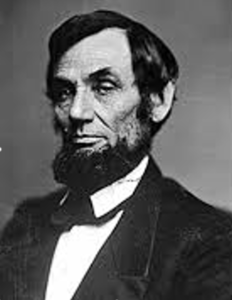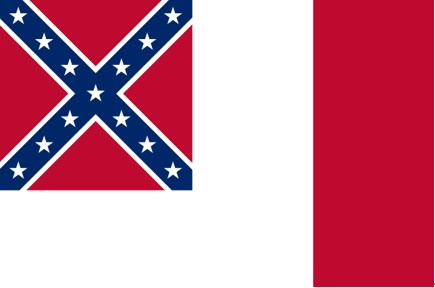Republican (nationalist) President Abraham Lincoln, of the united States, signs the Coinage Act of 1865, authorizing the placement of inscription, “IN GOD WE TRUST,” on all gold and silver Coins (lawful Money).
NOTE: The editors see Article I, Section 8, of the Constitution for the united States as an enumerated list of powers that may not be delegated to any other agency. The delegation of Clause 5, “To coin Money, regulate the Value thereof,” to the privately owned Federal Reserve System of (central) Banks have virtually destroyed the wealth of the average United States enemy/subject/citizen.
[updated 4/16/2022] Thanks to Freedom’s Phoenix for this entry.
Republican President Abraham Lincoln, of the united States—without a constitutional amendment—signs the Internal Revenue Act of 1865, raising the excise tax on cotton 25% to 2.5 cents per pound, while the price of cotton has decreased 26% in the last year to 72 cents per pound. This sets the stage for an agricultural depression in the south. This tax disparately impacts upon cotton producing States.
[restored 4/16/2022]
Republican President Abraham Lincoln, of the united States—without a constitutional amendment—signs the the Refugees, Freedmen, and Abandoned Lands Act, establishing the Freedmen’s Bureau with an authorized initial bond issue of $600,000,000 Dollars at five percent annual interest. The primary mission of the FB is to resettle freed slaves on land that had been abandoned by Confederate Citizens during the War of Federal Aggression, and to provide them with clothing, food, fuel water, health care, jobs, shelter and finding family members.
Postscript: Very few had been given their “forty acres and a mule” as had been allegedly promised under this act. Although many were settled on lands, for which the FB collected an annual rent—its sole source of revenue. The success of the FB at its primary mission did not match the success of the free-market agencies, such as the Freedmen’s Aid Society, Quakers, etc. (which were criticized as inadequate). The first director of the FB, Major General Oliver Otis Howard, of the Army of the united States, exceeded the scope of his authority, and established many institutions of higher education, for the freedmen, including Fisk University, in Nashville, Tennessee, and Howard University, in the District of Columbia (named after Major General Howard.
NOTES:
- While it is true Article I, Section 8 [Clause 2], authorizes Congress to “To borrow Money on the credit of the United States,” that power only extends to lawful powers (those specifically mentioned). The Coercion of any State is not a lawful power mentioned in the Constitution for the united States.
- Although feeding the hungry, clothing the naked, warming the cold, sheltering the homeless, and educating the ignorant are noble goals, there is no provision for this in the Constitution for the united States. Besides being unlawful, the Bureau was rife with corruption and inefficiency.
[updated 4/16/2022]
Republican President Abraham Lincoln, of the united States,—without a constitutional amendment—signs the Currency Act of 1865, creating a ten-percent sumptuary tax on currency issued by State chartered banks. The act forces the larger State chartered banks to re-charter themselves as national banks or go out of business.
NOTE: The Constitution for the united States only allows Congress to charter post-Offices and post-Roads, not banks.
[updated 4/16/2022]
Subsequent Events:
Authority:
Article I, Section 8 Clause 5]
ccc-2point0.com/constitution-for-the-united-states
“Law of the Jungle”
ccc-2point0.com/preface
References:
National Currency Act of 1865, 13 Public Statutes at Large 498 (1865).
Internal Revenue Act of 1865, 13 Public Statutes at Large 469, 484 (1865).
Matthew B. Hammond, The Cotton Industry; An Essay in American Economic History, (New York: Macmillan, 1897), 358 (table 2).
Calvin D. Linton, ed., The Bicentennial Almanac: 200 Years of America, 1776-1976, (Nashville, Tennessee: Thomas Nelson, 1975), 186.
Coinage Act of 1864 – Wikipedia, the free encyclopedia
en.wikipedia.org/wiki/Coinage_Act_(1864)
U.S. Banking Timeline
www.libertyforlife.com/banking/currency-us-timeline.html
us events
www.duke.edu/~charvey/Country_risk/chronology/us-events.htm
Freedmen, The Freed Slaves of the Civil War | American Civil War Forums
civilwartalk.com/threads/freedmen-the-freed-slaves-of-the-civil-war.77015/
The Freedmen’s Bureau Act, March 3, 1865
www.freedmen.umd.edu/fbact.htm
Reconstruction era – Wikipedia
en.wikipedia.org/wiki/Reconstruction_era


